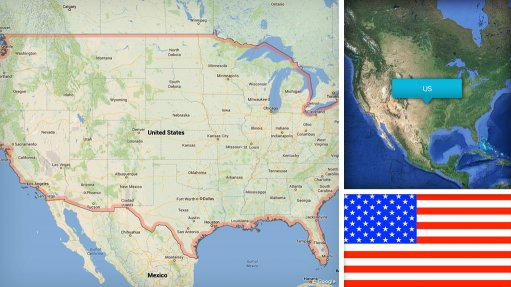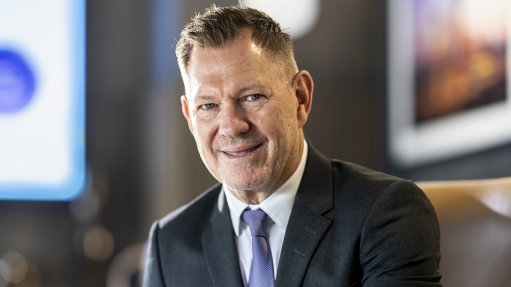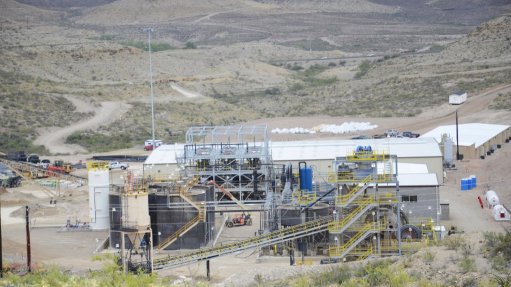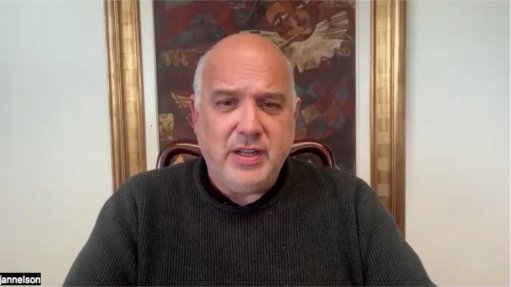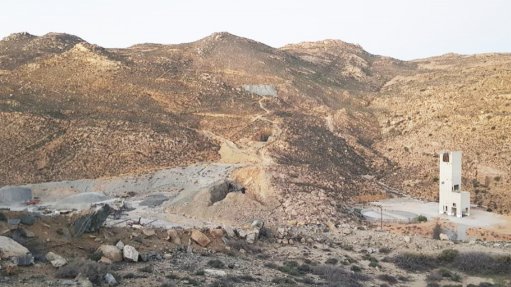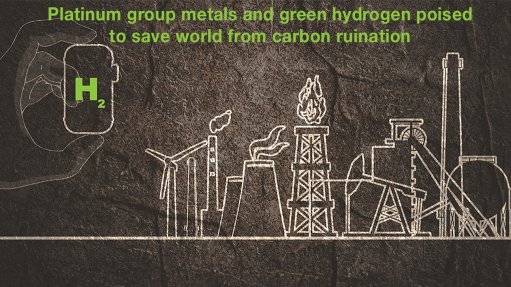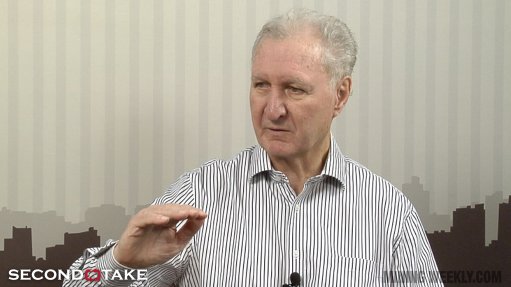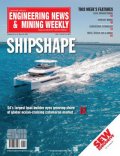Seifsa president calls for greater industrial policy decisiveness
Steel and Engineering Federation of Southern Africa (Seifsa) president Elias Monage has called for greater decisiveness on the part of the South African government in both defining which manufacturing sectors it intends supporting and enforcing local-content rules and legally determined trade protection measures.
Speaking at the Metals and Engineering Indaba, in Sandton, Monage, who is also Arabela Holdings executive chairperson, said the decline in manufacturing over the past two decades could be at least partly attributed to a lack of alignment between government and industry on policy objectives.
The weakening of manufacturing’s contribution to the economy had been further exacerbated, however, by the failure of government to enforce its own localisation and trade policies.
“What happened to South Africa’s once mighty steel and engineering sector that used to employ more than one-million people? Today, we employ less than 500 000 people,” Monage lamented.
By contrast, he argued that China’s manufacturing development and progress were a consequence of deliberate policy decisions, backed by tangible government support for industry, including favourable funding terms for manufacturing enterprises.
Some of this support had given Chinese firms an “unfair advantage”, which was currently serving to undermine the competitiveness of South African firms, which were, in turn, not receiving adequate, or timely, protection from government.
Seifsa CEO Kaizer Nyatsumba was even more strident in his criticism, arguing that, without more effective leadership from government, business and labour, the country would move “dangerously close to tipping over”.
“Government cannot execute this mammoth task alone. Obviously, with business not pulling the levers of legislative power, business also cannot do it alone. Instead, we need a strong partnership, involving, in the first instance, government, business and labour, followed by the general community,” Nyatsumba added.
The comments come amid seeming disagreement within Cabinet about the future direction of industrial policy, with Trade, Industry and Competition Minister Ebrahim Patel driving a so-called “reimagined industrial policy” to broaden support for several new sectors and Finance Minister Tito Mboweni calling for a streamlining of the policy.
In fact, a recent draft policy paper released by Mboweni urges a rationalisation of the Industrial Policy Action Plan (Ipap) to improve its efficacy. “The latest iteration of Ipap focuses on 13 sectoral areas, with numerous interventions under each (in addition, there are eight transversal focus areas). Ipap may have a greater impact if it targets fewer areas where the greatest gains can be made,” Mboweni’s paper argues.
Seifsa, meanwhile, reiterated its earlier appeal for government to enforce local-content rules in public procurement more rigorously and expressed disappointment at the recent awarding of tenders to foreign companies by some State-owned enterprises and municipalities for products that are manufactured domestically and which were specifically designated for local procurement.
It also appealed for an acceleration of International Trade Administration Commission of South Africa processes for dealing with antidumping and other unfair trade practices, as well as the enforcement of trade protection measures that had already been granted.
“We need to urgently pursue greater alignment and synergy between government and business,” Monage said, adding that in the absence of a clearly defined agenda for reigniting manufacturing, little progress would be made in achieving the country’s reindustrialisation objective.
Comments
Press Office
Announcements
What's On
Subscribe to improve your user experience...
Option 1 (equivalent of R125 a month):
Receive a weekly copy of Creamer Media's Engineering News & Mining Weekly magazine
(print copy for those in South Africa and e-magazine for those outside of South Africa)
Receive daily email newsletters
Access to full search results
Access archive of magazine back copies
Access to Projects in Progress
Access to ONE Research Report of your choice in PDF format
Option 2 (equivalent of R375 a month):
All benefits from Option 1
PLUS
Access to Creamer Media's Research Channel Africa for ALL Research Reports, in PDF format, on various industrial and mining sectors
including Electricity; Water; Energy Transition; Hydrogen; Roads, Rail and Ports; Coal; Gold; Platinum; Battery Metals; etc.
Already a subscriber?
Forgotten your password?
Receive weekly copy of Creamer Media's Engineering News & Mining Weekly magazine (print copy for those in South Africa and e-magazine for those outside of South Africa)
➕
Recieve daily email newsletters
➕
Access to full search results
➕
Access archive of magazine back copies
➕
Access to Projects in Progress
➕
Access to ONE Research Report of your choice in PDF format
RESEARCH CHANNEL AFRICA
R4500 (equivalent of R375 a month)
SUBSCRIBEAll benefits from Option 1
➕
Access to Creamer Media's Research Channel Africa for ALL Research Reports on various industrial and mining sectors, in PDF format, including on:
Electricity
➕
Water
➕
Energy Transition
➕
Hydrogen
➕
Roads, Rail and Ports
➕
Coal
➕
Gold
➕
Platinum
➕
Battery Metals
➕
etc.
Receive all benefits from Option 1 or Option 2 delivered to numerous people at your company
➕
Multiple User names and Passwords for simultaneous log-ins
➕
Intranet integration access to all in your organisation







